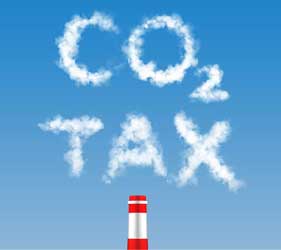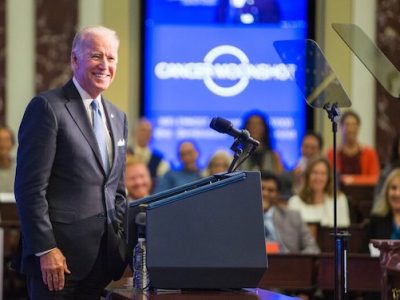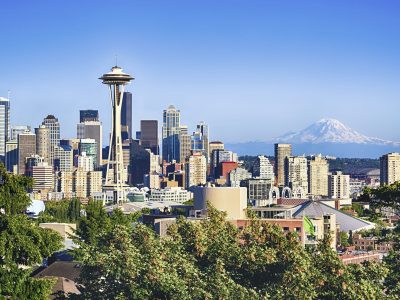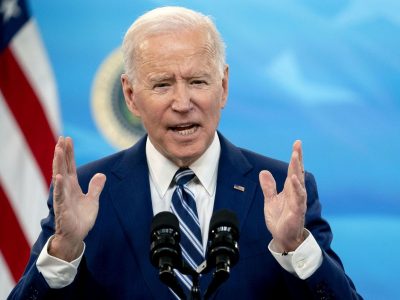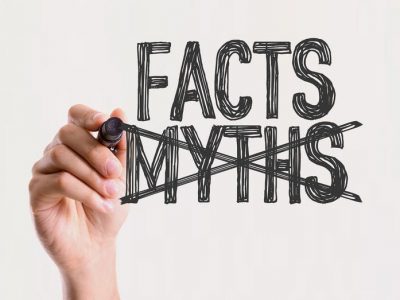Climate Change
Taxing Carbon?
Should we adopt a corporate carbon tax? Something to think about on Tax Day.
Today is Tax Day, delayed from its usual spot in mid-April due a backlog at the IRS. It seems like an apt time to think about a carbon tax. At present, it doesn’t seem to be on Biden’s agenda, but agendas can change with circumstances, sometimes unpredictably. Politically, the biggest problem with a carbon tax …
Continue reading “Taxing Carbon?”
CONTINUE READINGMaking Corporate Commitments Credible
How can we make climate pledges something more than cheap talk?
Companies across many different economic sectors have announced ambitious goals like being climate neutral by 2050. Commitments on ESG – Environmental, Social, and Corporate Governance — are a growing corporate emphasis. Talk is cheap, however. How can we know they’re serious? How can we even be sure that the information they release about their environmental …
Continue reading “Making Corporate Commitments Credible”
CONTINUE READINGGuest Contributors Clara Barnosky, Jane Sadler, Richard Yates, and Zachary Zimmerman: The Biden Administration’s First 100 Days of Reversing Environmental Rollbacks
An Early Analysis of Progress and Priorities in the Executive Branch
In the final months of the Trump presidency, we (a team of students working with U.C. Berkeley’s Center for Law, Energy and the Environment (CLEE)) compiled a database of over 200 environmental rollbacks enacted during the Trump administration. These rollbacks characterized the administration’s aggressive focus on deregulation of industry and disregard of protections for the …
CONTINUE READINGWashington State Ups Its Climate Game
After much travail, the state has finally put a price on carbon.
The Washington state legislature passed a historic climate change bill on April 24. The bill requires a 95% cut in carbon emissions by 2050. After much travail, the state has finally managed to put a price on carbon by adopting a cap-and-trade system. With the decision of additional states to join the east coast RGGI …
Continue reading “Washington State Ups Its Climate Game”
CONTINUE READINGBiden and the Environment: The First 100 Days
Biden has set up a lot of future actions. But he’s already got some notches on his belt.
Tomorrow marks Biden’s first 100 days in office. He’s appointed a great climate team and is negotiating an infrastructure bill that focuses on climate change. With luck, those actions will produce major environmental gains down the road. There are also some solid gains in the form of actions that have already come to fruition. Here’s …
Continue reading “Biden and the Environment: The First 100 Days”
CONTINUE READINGBiden Administration Sets Stage for Action on Vehicle Greenhouse Gas Pollution
Complementary actions by NHTSA and EPA clear the way for EPA to restore California’s waiver for tailpipe GHG emissions and its EV mandate
In two complementary actions in the last week, the Biden administration has set the stage for more stringent regulation of greenhouse gas (GHG) emissions from passenger vehicles—one of the country’s single largest sources of pollution that causes climate change. Today, the Environmental Protection Agency published a notice that it would reconsider the Trump administration’s withdrawal …
Continue reading “Biden Administration Sets Stage for Action on Vehicle Greenhouse Gas Pollution”
CONTINUE READINGFive Myths About Climate Policy
Debate about climate policy is often distorted by misconceptions.
In this post, I want to talk about some of the ideas that make it hard to have sensible discussions about climate policy. I don’t mean outright climate denial. Instead, I’m talking about less blatant misconceptions that keep many people from thinking seriously about cutting carbon emissions. Myth #1. EPA climate rules are a regulatory …
Continue reading “Five Myths About Climate Policy”
CONTINUE READINGAmerican Soil
Soil is an important carbon sink. It’s literally going down the drain, eroding away.
Today is Earth Day. Let’s talk about something earthy: the dirt under our feet. When I was a kid growing up in central Illinois, the topsoil was black and went down about a foot. When I was a little older and tried gardening, I was amazed at the fertility of the soil. When I’ve gone …
Continue reading “American Soil”
CONTINUE READINGOffering “Carrots” to Protect the Amazon
Brazil asks for a billion dollars to slow deforestation. Would this be cooperation or extortion?
In March, US President Joe Biden invited the leaders of 40 countries to a virtual climate change summit, which takes place today and tomorrow. During the lead-up to this, many countries announced commitments of varying specificity and firmness to reduce greenhouse gas emissions. (I hope to write soon on the European Union.) Brazil’s position is …
Continue reading “Offering “Carrots” to Protect the Amazon”
CONTINUE READINGStraws in the Wind
Businesses have intensified public support for climate action. That could presage a major shift in climate politics.
In the past few weeks, there’s been a notable growth of business support for climate action. A letter from the CEOs of 300 hundred major companies called for a 50% cut from 2005 carbon emissions by 2030. The companies ranged from the utilities to tobacco to investment management. Google, McDonalds, Walmart, and Philip Morris were …
Continue reading “Straws in the Wind”
CONTINUE READING



